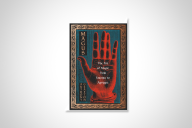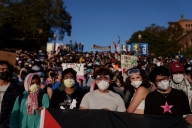You have /5 articles left.
Sign up for a free account or log in.
College students may notice prices of items in their campus stores and coffee shops decrease — or at least not get any higher — thanks to a U.S. district judge’s ruling that said the Federal Reserve’s 21-cent cap on debit-card transactions is too high.
In an opinion on Wednesday, U.S. District Judge Richard Leon agreed with retailers that the Fed’s limit on “swipe” fees that was set in 2011 did not come close to its own staff's recommendation for a cap of 12 cents. These fees are set by Visa Inc. and MasterCard Inc., the biggest electronic-payment networks, which collect the money and give it to card-issuing member banks.
The judge wrote that the Fed “clearly disregarded Congress's statutory intent by inappropriately inflating all debit card transaction fees by billions of dollars...”
Swipe fees are “invisible” costs for consumers, because they force merchants to hike up costs of their merchandise in order to pay transaction fees to the banks. College students are especially affected, because the merchants most hurt by the swipe fees are those that sell inexpensive products like coffee and snacks — all products likely to be found in an on-campus store, said Ed Mierzwinski, consumer program director and senior fellow for U.S. PIRG. Additionally, swipe fees are the highest costs, after personnel, for campus bookstores, said Richard Hershman, who is the vice president of government relations for the National Association of College Stores. If higher education retailers don’t have to give as much money to the banks as a result of lower swipe fees, then they have more money to “return back to students," Hershman said.








